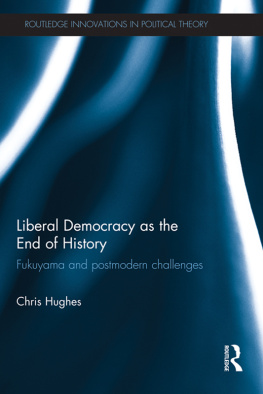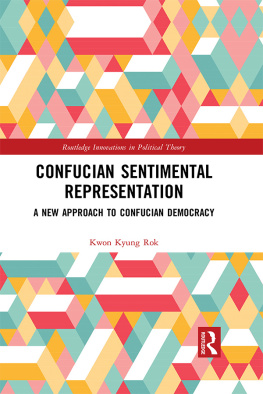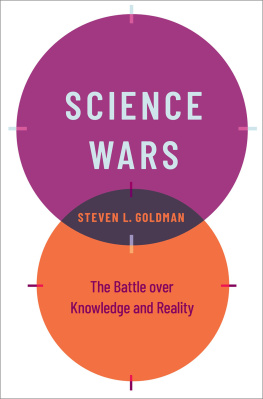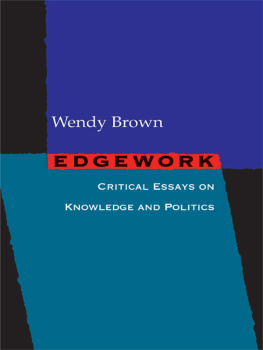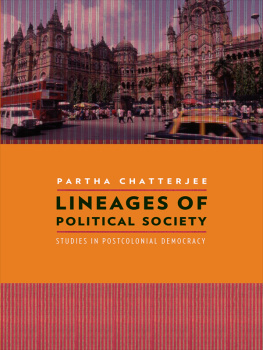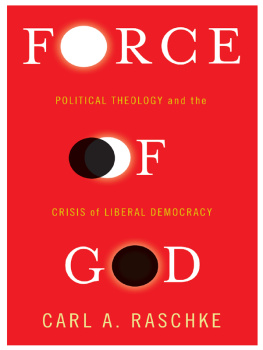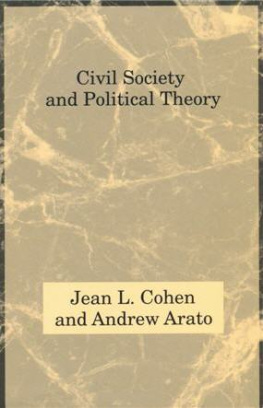Liberal Democracy 3.0
Theory, Culture & Society
Theory, Culture & Society caters for the resurgence of interest in culture within contemporary social science and the humanities. Building on the heritage of classical social theory, the book series examines ways in which this tradition has been reshaped by a new generation of theorists. It also publishes theoretically informed analyses of everyday life, popular culture, and new intellectual movements.
EDITOR: Mike Featherstone, Nottingham Trent University
SERIES EDITORIAL BOARD
Roy Boyne, University of Durham
Mike Hepworth, University of Aberdeen
Scott Lash, Goldsmiths College, University of London
Roland Robertson, University of Aberdeen
Bryan S. Turner, University of Cambridge
THE TCS CENTRE
The Theory, Culture & Society book series, the journals Theory, Culture & Society and Body & Society, and related conference, seminar and postgraduate programmes operate from the TCS Centre at Nottingham Trent University. For further details of the TCS Centres activities please contact:
Centre Administrator
The TCS Centre, Room 175
Faculty of Humanities
Nottingham Trent University
Clifton Lane, Nottingham, NG11 8NS, UK
e-mail:
web: http://tcs.ntu.ac.uk
Recent volumes include:
The Tourist Gaze
John Urry
Critique of Information
Scott Lash
French Social Theory
Mike Gane
Veblen on Culture and Society
Stjepan Mestrovic
Liberal Democracy 3.0
Civil Society in an Age of Experts
Stephen P. Turner
2003 Stephen P. Turner
First published 2003
All rights reserved. No part of this publication may be reproduced, stored in a retrieval system, transmitted or utilized in any form or by any means, electronic, mechanical, photocopying, recording or otherwise, without permission in writing from the Publishers.
 | SAGE Publications Ltd
6 Bonhill Street
London EC2A 4PU |
SAGE Publications Inc
2455 Teller Road
Thousand Oaks, California 91320 |
SAGE Publications India Pvt Ltd
B-42 Panchsheel Enclave
Post Box 4109
New Delhi 110 017 |
British Library Cataloguing in Publication data
A catalogue record for this book is available from the British Library
ISBN 0 7619 5468 6
ISBN 0 7619 5469 4 (pbk)
Library of Congress Control Number 2002115622
Printed and bound in Great Britain by Athenaeum Press, Gateshead
For Douglas Carrera Turner
in the general interest, domination should be proportionate to enlightenment.
(Henri Comte de Saint-Simon [1803]1952: 8)
The decision of the question whether a man do reason rightly, belongs to the city.
(Thomas Hobbes [1651]1839: 268-9)
The Republic has no need of scientists.
(attributed to the Presiding Judge in the trial of Antoine Laurent Lavoisier, in response to the chemists request for a delay in his execution to enable him to complete some scientific work)
Foreword
This book may be read in a number of ways, and by a number of audiences, so it is perhaps my task as author to identify, or confess to, a few of the ways it was intended to be read, and in the course of this to explain its relation to a number of other texts that are important to it, but either unmentioned or undiscussed.
The series in which this book appears, Theory, Culture & Society, together with my role in relation to the journal and its concerns, suggests one way of reading it: as a text that is in a broad sense a Weberian or Weberian-Schmittian account of the problem of experts and its bearing on Liberal Democracy. The mode of explanation and the conclusions parallel, in some respects, the historical accounts that Weber gives of the origins of modern bureaucracy in the slow rise of the royal staff in its struggle with the feudal aristocracy, and, in his Agrarian Sociology of Ancient Civilizations (1976), the slow transformation of slaves and small-holders into serf-like dependents. In Liberal Democracy 3.0, the slow transformation is from a politics of sovereign citizens to a politics of diffused experts, in which electoral struggle is gradually supplanted by what I call commissions, that is to say expert bodies. The 3.0 in the title refers to a periodization of Liberalism that is elaborated in , from the initial forms of Liberalism in which the franchise was restricted, to the late nineteenth century form, of government by discussion with full franchise, to the form that I argue is now emerging: a form in which discussion is limited to those topics not delegated to experts. The argument, in this reading, can be seen to contrast to that of Foucault and Habermas, for reasons that will be discussed in the text itself. Habermas, like much of the Left today, has taken up the idea of civil society as an ideal. One of the followers of Habermas wrote a paper on the theme of nostalgia as critique. One point of this book is to ask whether a critique based on the ideal of civil society is an exercise in nostalgia.
The book may also be read as a text in political theory. It updates and extends arguments made by the great nineteenth century liberals, from Tocqueville and John Stuart Mill to Albert Venn Dicey, who lived long enough to see and understand what was happening as the older liberalism began to turn into the mode of governance we are familiar with today, which he identified with the collectivist current of opinion that emerged, by his reckoning, in the period after the American Civil War. Dicey associated this socialist current with the idea of rule by experts, a political idea with an interesting subsequent history on the Left, which eventuates in one or another model of the democratic control of science. To this largely familiar story, something is added: a consideration of the thinking of James Bryant Conant. Conant grasped that democratic control was a dangerous illusion, and argued instead, so I will claim, for a different strategy, which I call Liberalizing Expertise, by which I mean controlling experts indirectly and also by forcing the opinions of experts into the light provided by contentious discussion outside of the body of experts.
The text also has some philosophy, and even a few philosophical distinctions and theses, though these are purposely kept to the side, for the most part. A more detailed discussion of the issue of the corporate character of scientific authority can be found in my Scientists as Agents (2002a). Another set of issues involves the status of rational considerations and their relation to disciplined communities: science is a paradigm case of the organization of discourse around a scheme of common skills and exacting training. Political rationality is not organized in this way. But even science depends on political discussion about itself. The claims I make here involve a defense, of sorts, of the primacy of non-disciplined rationality. It has affinities with a more general anti-Kantian line of argument I have developed elsewhere, particularly in Brains/Practices/Relativism: Social Theory after Cognitive Science (2002b).
The book is also a text in science studies, and its relation to that body of thought is sufficiently complex that a more complex explanation is owed. A better subtitle might have been A Political Prolegomena to Science Studies, for that is what it attempts, in part, to provide: the tools for understanding the political significance of science studies. I considered, and indeed in an earlier draft attempted to formulate, the argument of the book as a critique of a series of various science studies authors, ranging from Ulrich Beck to Sheila Jasanoff and Brian Wynne, whose writings on science and politics have seemed to me interesting enough to be worthy of criticism. I decided that detailed critique was inappropriate. There was some point to a dialectical analysis of the inner contradictions of the attempt to be anti-essentialist (or social constructionist) about science and at the same time to provide some sort of external Gods eye view critique with policy implications which bedevils science studies attempts to be normative. But in the end I decided that this severely textual approach demanded too much and produced too little. It demanded too much from the reader, who would need to be provided with a great deal that was not in the text, notably the common ground of political theory and legal philosophy necessary to see the point of the analysis, and would produce little in the way of positive argument. But trying to do this reminded me of the difficulties that those of us with an interest in science and politics have had in establishing enough of a common problematic to start a meaningful discussion. I hope that the argument of this book, right or wrong, is sufficiently panoramic and rooted in the larger tradition of political and social theory to do so, and that someone rises to the bait.



